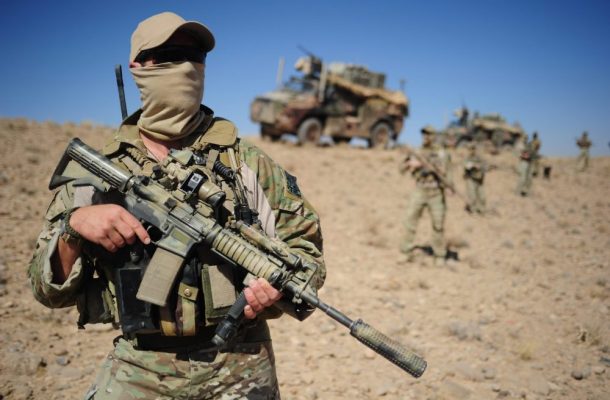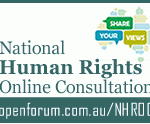Grim findings to come in war crimes investigation

Australians will be dismayed by the findings of an investigation into allegations that their special forces in Afghanistan committed war crimes, Defence Minister Linda Reynolds has warned.
Interviewed by journalist Stan Grant as part of ASPI’s ‘Strategic Vision 2020’ online conference series, Senator Reynolds said the investigation was nearing its conclusion.
‘I think that will make some very significant findings, ones that I’m certain will make many Australians uncomfortable and also dismayed at. So, I think we do need to prepare ourselves for that.’
Reynolds indicated that since the allegations first surfaced, considerable work had been done to prevent a repeat. ‘I can say that in the intervening years, the army and particularly our special forces have been doing a significant amount of self-reflection on how some of these reported circumstances could have happened and what needs to happen structurally and culturally to make sure that these events do not happen again.’
Reynolds said she had not yet seen the report, ‘but I think we’ve seen enough publicly to understand what might be in there, that that in no way reflects on our current serving men and women both here and overseas who are doing an extraordinary job for our nation.’
In 2016, the then special forces commander, Major General Jeff Sengelman, is understood to have been concerned enough about the persistent allegations that he raised them with Lieutenant General Angus Campbell, who was then chief of the army. General Campbell, now chief of the Australian Defence Force, is also a former special forces commander.
Campbell instructed the inspector-general of the ADF, James Gaynor, to investigate allegations that members of the Special Operations Task Group committed war crimes during deployments in Afghanistan between 2005 and 2016.
New South Wales Supreme Court judge Paul Brereton, an army reserve officer, was appointed to head an inquiry with an initial brief to separate fact from fiction and ascertain whether there was truth in the allegations.
In September 2017, Brereton made a public call for anyone with relevant information to come forward. An increasing number of former and serving soldiers responded.
In February this year, the inspector-general’s annual report revealed that 55 separate incidents were being examined and more than half of them involved the alleged killing of unarmed civilians and prisoners.
The annual report stressed that the inquiry was not focused on decisions made in the ‘heat of battle’.
‘Rather, its focus is the treatment of persons who were clearly non-combatants or who were no longer combatants.’
During her wide-ranging ASPI interview with Grant, Reynolds said the government had made it clear to China that it was not happy with some of its actions, including its measures in Hong Kong and the militarisation of disputed features in the South China Sea.
‘So we are calling out that behaviour but we have always made it clear that we welcome China playing a role as a responsible regional partner, and where we do not see that occurring, we will absolutely keep calling that out, and we are.’
In areas where China was not behaving like a good global citizen, Reynolds said, ‘we have called on them to abide by international law, and also to respect the sovereignty of all other nations in our region and more widely’.
Asked if the ramping up of Washington’s rhetoric towards China had increased the pressure on Australia to follow suit, Reynolds responded, ‘No, absolutely it has not.’
The minister said she had no doubt that it was important for her and Foreign Affairs Minister Marise Payne to travel to the US for face-to-face talks with their counterparts Mark Esper and Mike Pompeo.
Still in Covid-19 quarantine as a consequence, Reynolds said it was the right decision to go in person to discuss important strategic issues. ‘The discussions that we were able to have, as I said, over many meetings and meals provided an opportunity for us to share with the US our perspective on our region, our perspective on their relationship with China, and also Covid-19, our respective responses.’
The discussions were very rich and very frank, she said. ‘But it is very clear that the US respects that we do have, in a number of areas, differences of opinion. You can see that at our press conference, that we share so much together, and our alliance is in incredibly good shape but we do have different perspectives and that’s as, I think, Australians would expect it to be.’
Later, Reynolds said that the US was not asking Australia to choose between it and China. ‘We don’t have to choose, and we are working very hard not to choose, and the United States is not asking us to choose. We are managing both, I think, very effectively in quite a challenging environment.’
Reynolds said she was confident that the current plan to re-equip the ADF was the right one, but changes were needed within Defence to make it happen. She was working on that with Defence executives. ‘We’ve got the right capability plan, but we don’t have an organisation that is yet adaptable enough to actually deliver, to not only procure over 400 separate capability programs to integrate that into, but we need the backbone as in the Defence organisation itself to transform to deliver these capabilities.’
Reynolds said that for over a century, Defence had faced the perennial problem of providing the capabilities the ADF needed. ‘We’ve got a very large Defence organisation. It is better than it used to be under our force structure plan process but there is a lot of work to be done to continually transform the organisation to keep up with technological change and disruption but also to ensure that we can keep delivering what we need to.’
This article was published by The Strategist.
Brendan Nicholson is the Defence Editor at The Strategist. He joined the Federal Parliamentary Press Gallery in November 1995 and has covered federal politics, foreign affairs, defence and national security issues for two decades, with The Canberra Times, The Age and The Australian.













